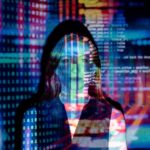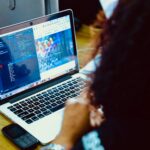Blog
Challenging Misinformation: Exploring Limits and ApproachesAuthor:
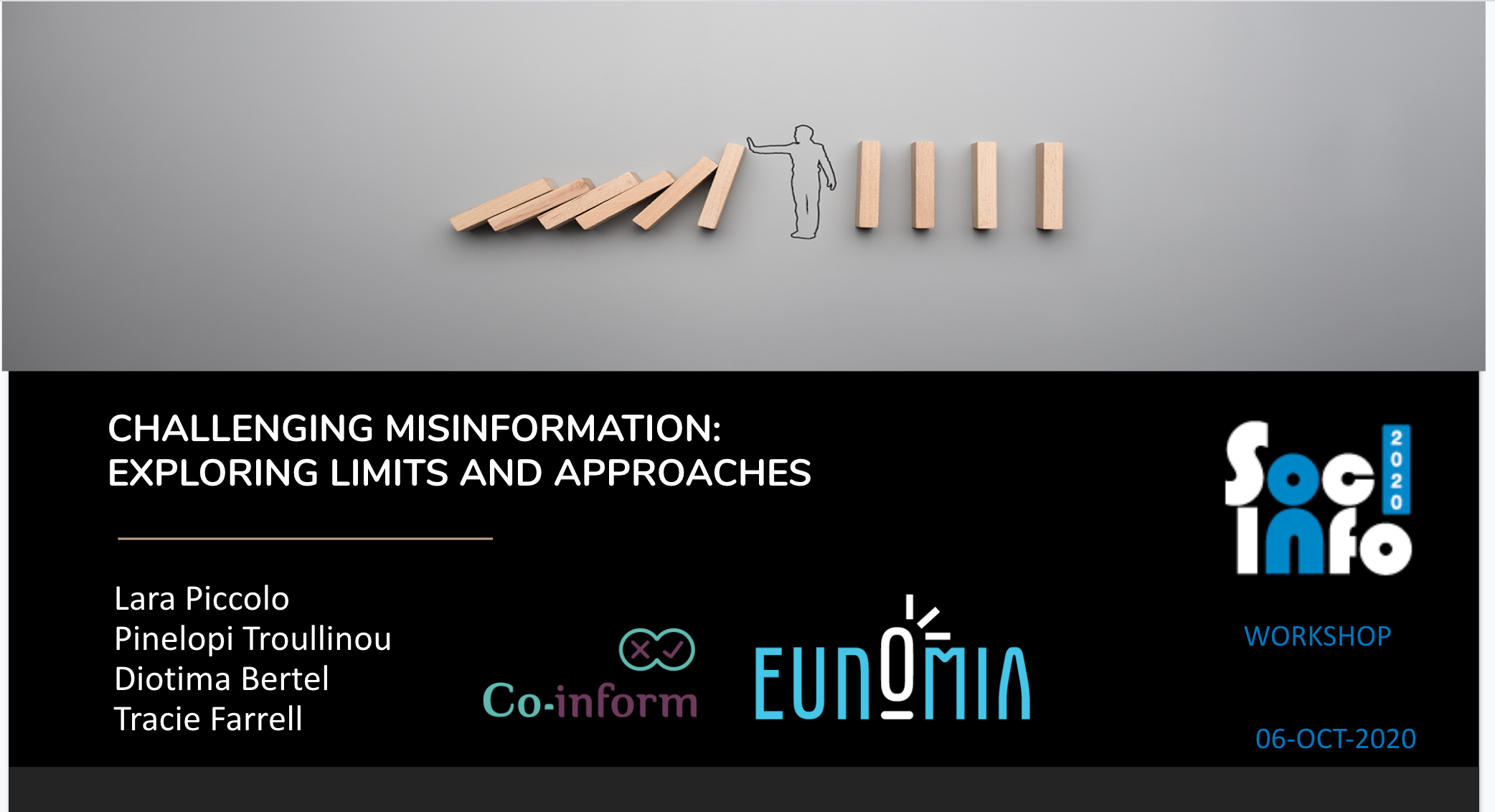
Co-Inform joined forces with the European project Eunomia to run together the workshop “Challenging Misinformation: Exploring Limits and Approaches”, held at Social Informatics Conference 2020 (SocInfo2020) on Tuesday, October 6th, 2020.
From Co-inform, Lara Piccolo and Tracie Farrell (Open University) invited researchers and practitioners interested in aligning social, computational and technological approaches to reflect on the state-of-the-art in misinformation detection tools, best practices and the challenges we have yet to tackle. Our goal was to develop collaborations and synergies that can start to dismantle these roadblocks.
The participants presented four papers about their current research activities that spoke to present limitations. Our first speaker, Gautam Kishore Shahi from the University of Duisburg-Essen, Germany, spoke about the different prevalent conspiracy theories that have emerged around COVID-19, related to Bill Gates for example, or 5G technology, and the specific challenges of correcting conspiracy claims. He also presented the team’s work on credibility assessment of fact-checking websites and the impact of fact-checking integrity on public trust. Markus Reiter-Haas from Graz University of Technology and Beate Klosh from the University of Graz, Austria, presented on the thorny issue of polarisation in public opinion across different topics of misinformation, using a rich mixed methods approach that also allowed them to view the timeline of all of their survey participants. Alicia Bargar and Amruta Deshpande tackled the issue of affordances across different platforms and how this corresponds to different types of vulnerability to misinformation.
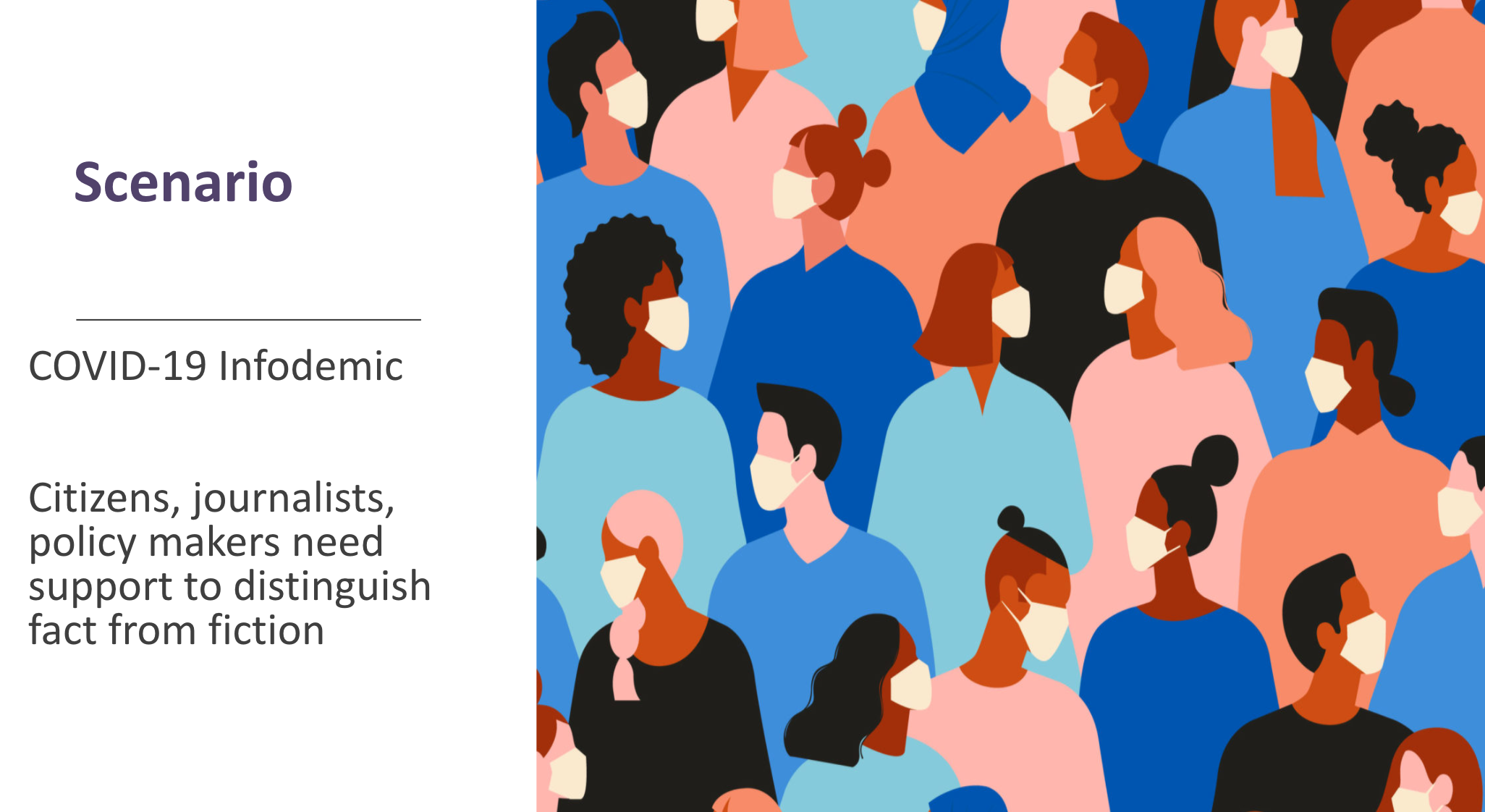
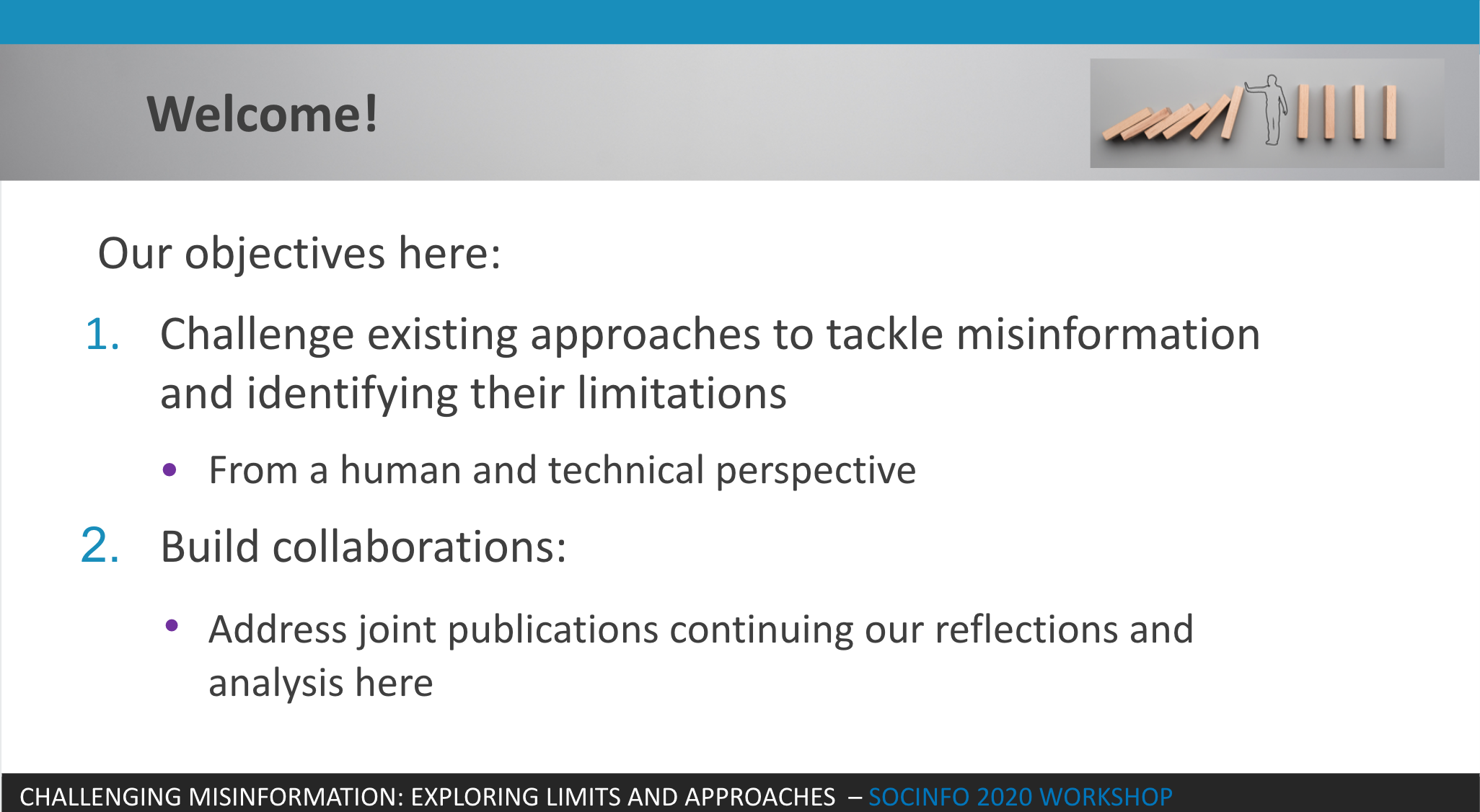
As a “hands-on” activity, we invited our participants to consider the best tools they know of for dealing with misinformation and to consider where even those “best” solutions fall short. Participants generally appreciated tools that help users to understand certain characteristics of information, or that pointed them in the direction of verified, trustworthy sources, or that allowed them to follow an information trail of the content (typically image or film). They also appreciate tools that allow users to think twice before sharing, and which encourage users to check information again. However, the limitations associated with degradation or data drift are still apparent in automatic detection tools. In addition, to get people to use tools to help them avoid misinformation and sharing misinformation, the person already needs to be motivated to do so. Increasingly, source data, real-time analysis and effective literacy approaches are issues that need to be resolved.
We wanted to offer participants the chance to work together on issues as we identified them. The first collaboration we have initiated is to report in more detail our workshop results, and discuss how to actually “progress” toward addressing misinformation and the limitations and challenges of using the tools we use. In addition to this, Eunomia has invited our authors to collaborate on a book project that is intended to develop some of those ideas in more detail. We also had several spontaneous research projects that participants intend to develop.

This SocInfo2020 workshop was a follow-up from its first edition at INTERACT 2019 conference, held with members of the Co-Inform Consortium and conference participants. At the first edition, we identified some key issues that needed our immediate attention: improving source data, conducting more user studies and improving transparency and explainability, as well as more generally providing holistic, inclusive solutions for the complex problem of misinformation. The works presented this year suggest that researchers have made progress toward some of the immediate goals we identified last year – to think more about how communities experience misinformation and fact-checking, to dig deeper into the issues that make misinformation enticing or persistent, and to use a broad range of methods to investigate this problem.
Academic surveys have shown that online misinformation is becoming more difficult to identify. Online misinformation has the potential to deceive even readers with strong literacy skills. Our goal is to provide citizens, journalists, and policymakers with tools to spot ‘fake news’ online, understand how they spread, and obtain access to verified information.
EUNOMIA is an European project providing tools and technology for “user oriented, secure, trustful and decentralised social media.
Subscribe to our newsletter
Get our latest project updates, news and events announcements first!

Co-inform project is co-funded by Horizon 2020 – the Framework Programme for Research and Innovation (2014-2020)
H2020-SC6-CO-CREATION-2016-2017 (CO-CREATION FOR GROWTH AND INCLUSION)
Type of action: RIA (Research and Innovation action)
Proposal number: 770302


